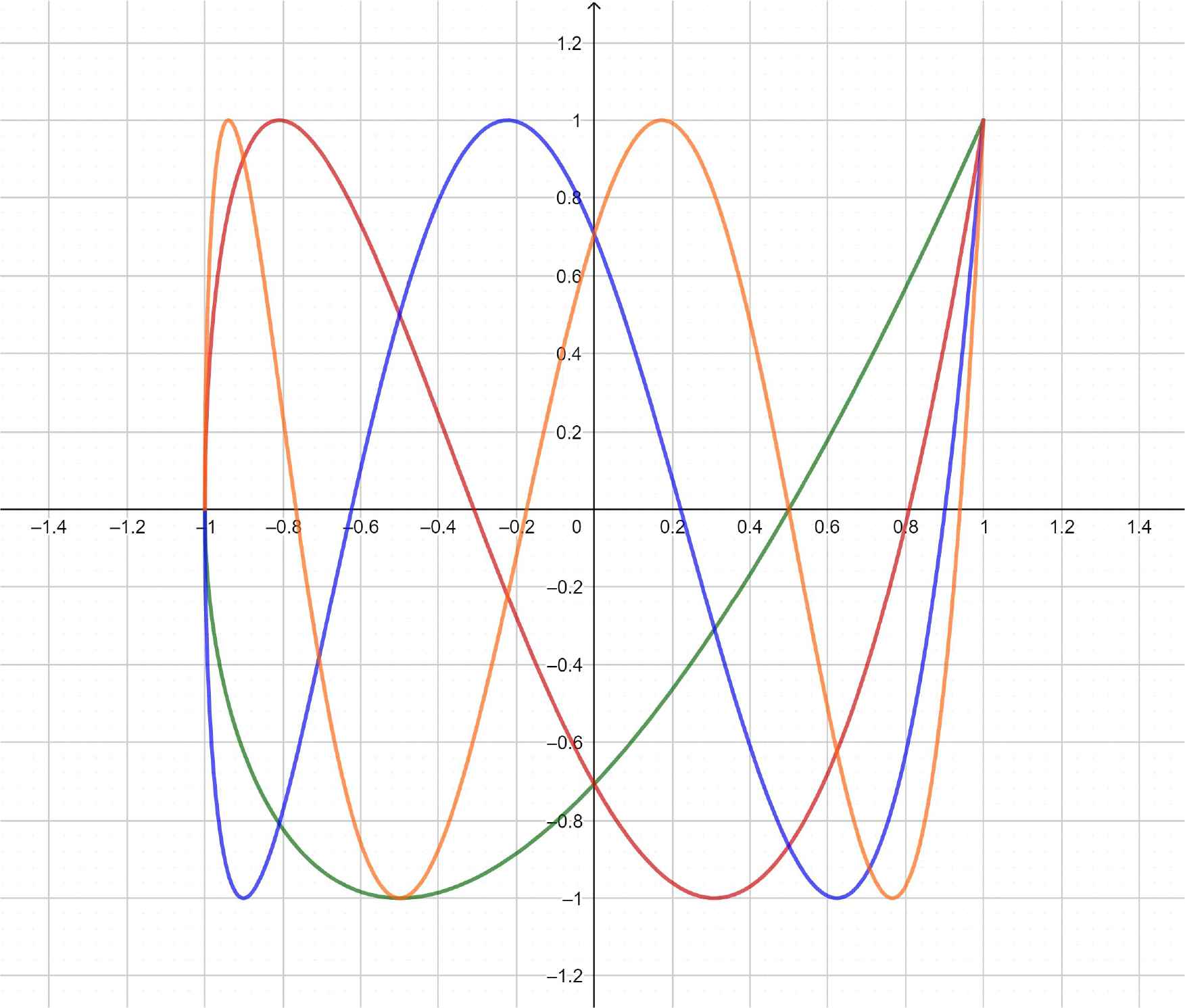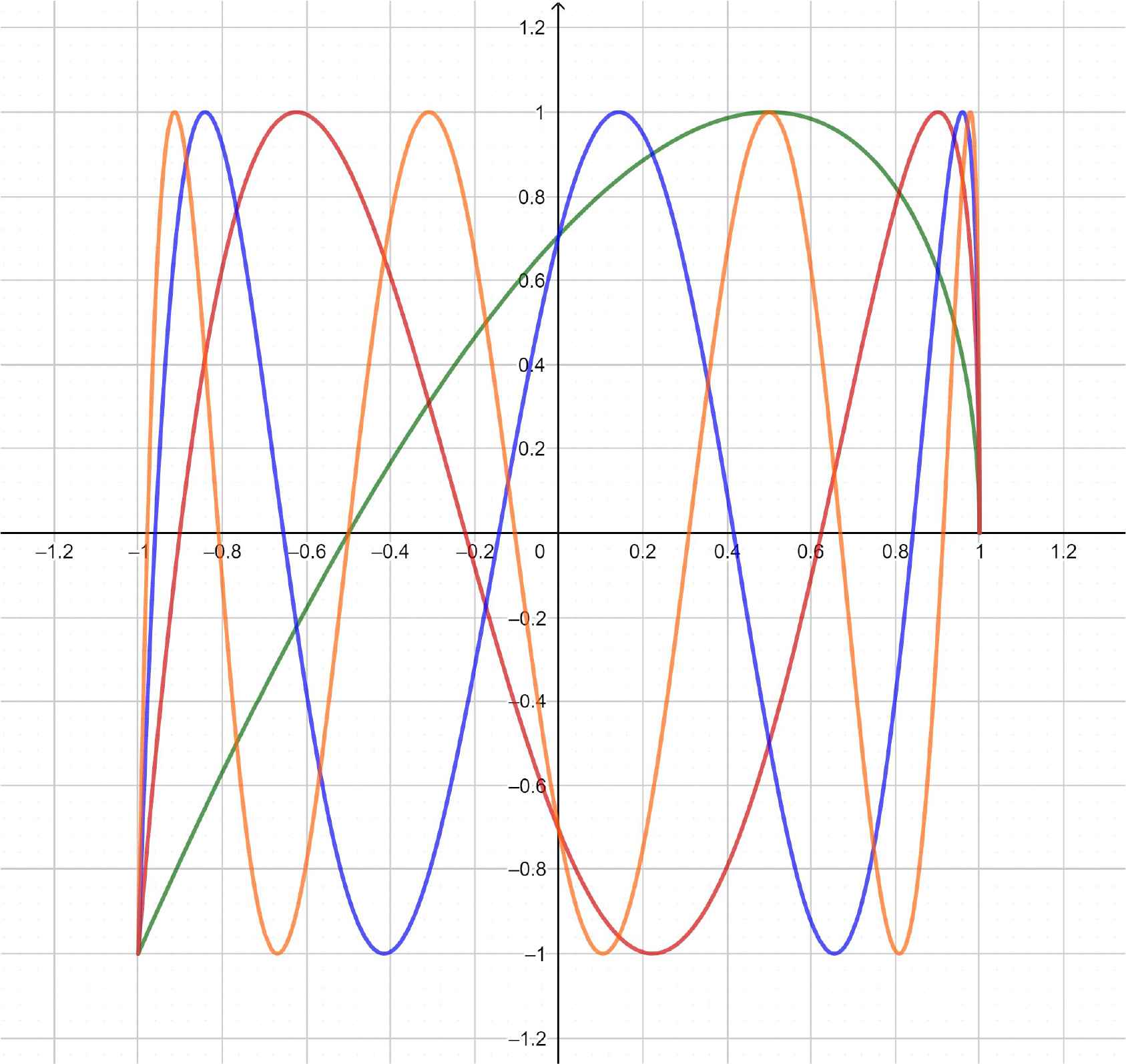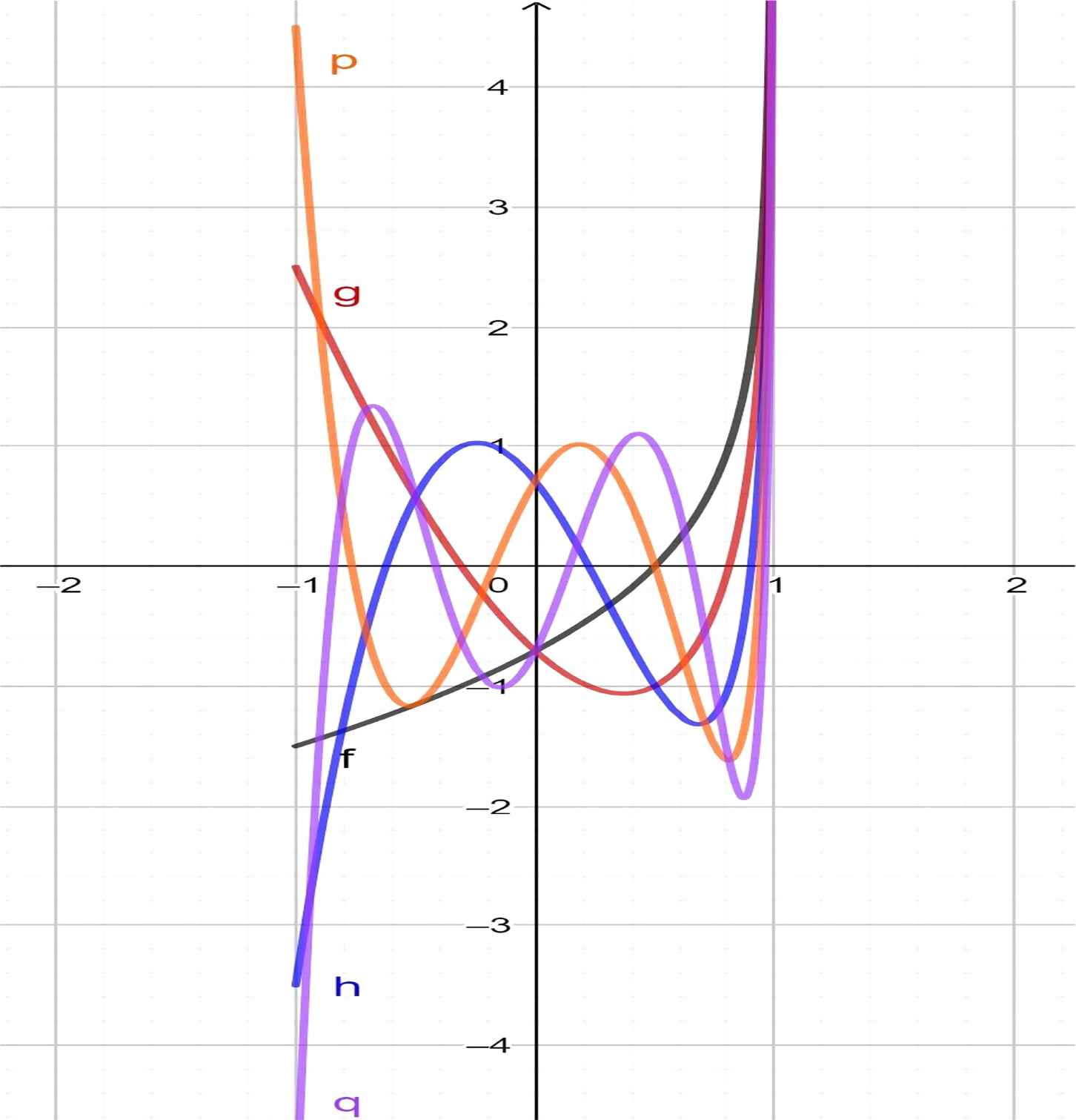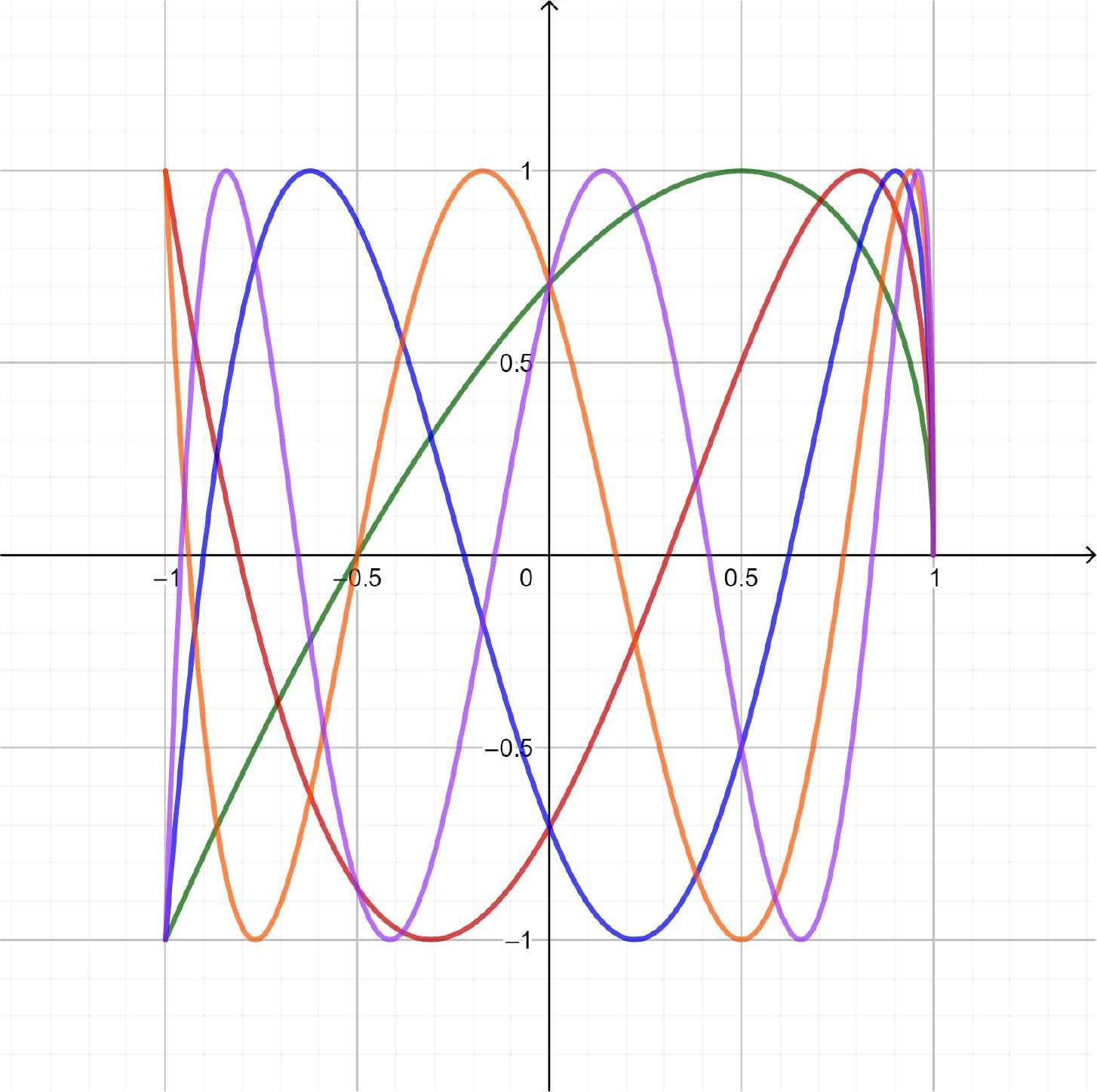From Pythagoras to Fourier and From Geometry to Nature
DOI: https://doi.org/10.55060/b.p2fg2n.ch008.220215.011
Chapter 8. Pseudo-Chebyshev Functions
Starting from the rhodonea curves of integer indices, passing from polar to Cartesian coordinates, we find the connection with the first kind Chebyshev polynomials. However, the rhodoneas exist even in the case of fractional indices. This led to the idea of the existence of an analytic theory that extends these polynomials to the case of fractional indices. In this way, we obtain mathematical entities which, although no longer polynomials, continue to verify some of the properties of the above-mentioned Chebyshev polynomials and were therefore called pseudo-Chebyshev functions (PCF in short) of the first kind.
We start by considering the pseudo-Chebyshev functions of the first and second kind, which are an extension of these kind of Chebyshev polynomials to the case of fractional indices. We put by definition:
Note that these functions arise naturally, extending to the fractional indices the corresponding polynomials of the first and second kind.
8.1 Basic Properties of the First and Second Kind PCF
We recall here only a few properties of these functions, but many others have been proven in several recent articles [6, 23, 24, 77, 82]. The following theorems hold:
8.2 The Case of Half-Integer Degree
We now consider the case of the half-integer degree, which seems to be the most interesting one, since the resulting pseudo-Chebyshev functions satisfy the orthogonality properties in the interval (−1, 1) with respect to the same weights of the corresponding Chebyshev polynomials [24].
Definition. For any integer k:
Note that the above definition holds even for k + 1/2 < 0, taking into account the parity properties of the circular functions. We will show that, in the case of half-integer degree, the pseudo-Chebyshev functions satisfy not only the recursion analogues to the classical ones, but even the orthogonality properties.
8.2.1 Orthogonality of the First and Second Kind PCF
A few graphs of the

Tk+1/2(x), k = 1 (green), 2 (red), 3 (blue), 4 (orange).
Theorem 8.3.
The pseudo-Chebyshev functions Tk+1/2(x) satisfy the orthogonality property:
A few graphs of the

Uk+1/2(x), k = 1 (green), 2 (red), 3 (blue), 4 (orange).
Theorem 8.4.
The pseudo-Chebyshev functions
Proof. We prove only Theorem 8.3 since the proof of Theorem 8.4 is similar. From the Werner formulas, we have:
8.3 Basic Properties of the Third and Fourth Kind PCF
The third kind pseudo-Chebyshev functions (Figure 17) satisfy the recurrence relation:

Vk+1/2(x), k = 1 (grey), 2 (red), 3 (blue), 4 (orange), 5 (violet).
The orthogonality property holds:
The fourth kind pseudo-Chebyshev functions (Figure 18) satisfy the recurrence relation:

Wk+1/2(x), k = 1 (green), 2 (red), 3 (blue), 4 (orange), 5 (violet).
The orthogonality property holds:







